This blog seeks to spotlight noteworthy UNESCO science and communications programs; it emphasizes links between the United States and UNESCO.
Friday, December 29, 2006
UNESCO Young Professionals Program
Young professionals (who will be under the age of 30 on May 1, 2008) should keep this program in mind, and consider applying next Fall when we expect the process will open again.
Wednesday, December 27, 2006
Tuesday, December 26, 2006
Global Forum: Building Science, Technology, and Innovation Capacity for Sustainable Growth and Poverty Reduction
 On February 13-15, 2007, the World Bank, in partnership with UNESCO, UNCTAD, the IDB, DFID, CIDA, and the GRA, will convene a Global Forum on Building Science, Technology, and Innovation Capacity for Sustainable Growth and Poverty Reduction. The Forum will seek to understand the lessons of previous and ongoing STI capacity building experiences and map out new and more effective ways for governments, industry, academia, foundations, and donors to work together to apply STI capacity building to development in low and middle-income countries.
On February 13-15, 2007, the World Bank, in partnership with UNESCO, UNCTAD, the IDB, DFID, CIDA, and the GRA, will convene a Global Forum on Building Science, Technology, and Innovation Capacity for Sustainable Growth and Poverty Reduction. The Forum will seek to understand the lessons of previous and ongoing STI capacity building experiences and map out new and more effective ways for governments, industry, academia, foundations, and donors to work together to apply STI capacity building to development in low and middle-income countries.A background paper is available at this website.
"Science in an International and Humanitarian Context"

Read the full article by Lynn Dicks on the AAAS Science Careers website (22 December 2006).
I quote extensively from the article:
Natarajan Ishwaran, director of the UNESCO Ecology and Earth Sciences division, says that the first UNESCO director-general, the distinguished zoologist Julian Huxley, fought hard to put science on UNESCO's agenda. Today, UNESCO spends one-seventh of its $610 million budget on science and employs about 200 scientists. About half of them are based at the Paris headquarters; the rest work in one of five regional and 51 field offices around the world. The job of these scientists is to co-ordinate international efforts between researchers and the public, the media, and international governments. "We are brokers," says Ishwaran, "between science and everything else."A climate scientist at UNESCO
UNESCO is keen to recruit young scientists, and those hoping to swap research for a career in intergovernmental work will find some opportunities there--provided they are not looking for too much job security.
UNESCO offers different entry points (see box) to people who are already involved in international research and can contribute their own ideas and contacts. Because these jobs are truly international, one of the most important credentials is the ability to speak several of the six United Nations languages. With 200 to 500 applicants for every job, competition is comparable to what it is for good faculty science jobs--which isn't surprising considering the tax-free pay, 30 days of annual leave, expenses to travel home, and for dependent children extra pay and educational grants all the way through university. The nature of the work is attractive too. "Intergovernmental work is seductive to young scientists," says Patricio Bernal, an assistant director-general at UNESCO, because it has the potential to change things for the better, on a global scale.
Albert Fischer, a Swiss-American oceanographer who speaks French and English and is learning Spanish, has been working for 2 years at the UNESCO Intergovernmental Oceanographic Commission (IOC) in Paris, where he co-ordinates a group of academic scientists charged with deploying a global ocean-observation system to help predict the climate. Fischer recently presented work to a meeting of the U.N. Framework Convention on Climate Change. "It was very exciting," says Fischer. "I was out of my realm. Here in Paris, I work alongside other oceanographers. There, I was presenting to ministers of state."Young scientists from the United States should contact the State Department's UNESCO office for help in getting a job with UNESCO. Let us know at Americans for UNESCO if we can help!
Call for a binding intergovernmental agreement for an ocean observation system
Today the Director-General of UNESCO, Koïchiro Matsuura, announced a new partnership between UNESCO’s Intergovernmental Oceanographic Commission (IOC), which has coordinated the planning and implementation of this system, and the global satellite communications leader, INMARSAT, provides free satellite communication links to 50 sea-level sensors in the Indian Ocean, making this part of the tsunami warning system the most advanced real-time sea-level network in the world.
In making the announcement he remarked:
UNESCO’s IOC is committed to helping all countries in the world’s danger zones to building their national warning systems as part of the global tsunami and other ocean-related hazards warning system, right down to the last mile. I am pleased to report that real progress has been achieved in the Indian Ocean and work is well underway on warning systems for the North Eastern Atlantic and Mediterranean Region and the Caribbean, and the upgrading of the system in the Pacific. It must continue.
I am convinced that the data concerned must be considered as a Global Public Good. I therefore believe that its free and open exchange needs be upgraded to the level of a universal binding intergovernmental agreement, in order to commit nations to sustaining an integrated ocean observing system. Only when such an instrument exists will there be any guarantee that the extraordinary technology being deployed and the vast human and financial resources being mobilized will fulfill the promise that we, the international community, have made to better protect peoples’ lives and well being from such catastrophes as the tsunami that shook the world two years ago.
Monday, December 25, 2006
UNESCO's Content Development Program
 UNESCO is helping to overcome the language barriers to access information in cyberspace faced by many in poor countries. For example, it is training professionals and policy-makers in this field.
UNESCO is helping to overcome the language barriers to access information in cyberspace faced by many in poor countries. For example, it is training professionals and policy-makers in this field.UNESCO continues its support for the production, dissemination and preservation of culturally diverse content. Action is targeting public service broadcasters and ICT-based content producers to enable them to produce and disseminate programs reflecting local views on major societal issues. The Program for Creative Content, launched in 2002, has been instrumental in pursuing these objectives. The strategy includes building capacities among media professionals to create content in unreported and under-reported areas, with special emphasis on MDG.
Particular attention will be given to the role of the media in promoting dialog among cultures and civilizations as well as peoples.
Saturday, December 23, 2006
UN Educational, Scientific, and Cultural Organization (UNESCO)
The UN Educational, Scientific, and Cultural Organization (UNESCO) was established in 1945 with the primary objective of contributing to peace and security worldwide by promoting global collaboration through education, science, and culture. Since rejoining UNESCO on October 1, 2003, the United States continues to promote U.S. priorities at UNESCO in each of the Organization’s five sectors: Education, Culture, Communication and Information, Natural Sciences, and Social and Human Sciences. By promoting collaboration among nations, UNESCO strives to further universal respect for justice, the rule of law, human rights, and fundamental freedoms. Priority programs foster and defend the free flow of ideas and open access to education for all; build understanding of democratic principles and practice; promote scientific knowledge; and protect the cultural and natural heritage of humankind. UNESCO, which is headquartered in Paris, has 191 member states and has been led since 1999 by Director-General Koichiro Matsuura (Japan). He was reappointed for a four-year term in October 2005.
The Executive Board, one of UNESCO’s three constitutional bodies, consists of 58 member states with four-year terms of office. It examines the program of work and corresponding budget proposals, and ensures the effective and rational execution of the program by the Director-General. As a member of the Board, with a term that expires in 2008, the United States participated in the semiannual Board Sessions in Paris in April and September 2005. The Board continued negotiations on two instruments, the Convention on the Protection and Promotion of the Diversity of Cultural Expressions and the Declaration on Bioethics and Human Rights. The United States engaged actively in negotiating both of these instruments. In September, the Executive Board recommended that the General Conference, which met in October, consider the Convention on the Protection and Promotion of the Diversity of Cultural Expressions and the Declaration on Bioethics and Human Rights.
The Executive Board examined the Director-General’s preliminary proposals concerning UNESCO’s Program and Budget for 2008–2009. The Board also recommended that the Director-General temporarily stop creating normative instruments, put more effort into implementing education for all, and implement a review of the Natural and Social and Human Science programs.
U.S. priorities at the Executive Board were to maintain budget discipline within UNESCO and focus UNESCO program efforts and budget resources on the areas of literacy, capacity building in science and engineering, and the preservation of cultural objects. In particular, the United States was pleased with UNESCO efforts in the area of education.
In 2005, UNESCO saw several successes in the area of education, a main priority for the United States. The United States worked with other member states to promote results-based education programs at the country level, where they will do the most good toward achieving the goals of education for all. The United States also worked closely with UNESCO in launching the Literacy Initiative for Empowerment, a literacy strategic framework with the goal of achieving concrete, measurable results in 34 countries with the highest rates of illiteracy. U.S. literacy experts were included in the preparation of this strategy, as a way to help ensure that U.S. research and experience in this critical area could be shared with others, including the promotion of an inter-generational, mother/child approach to literacy programming.
At the General Conference in October, the United States was able to join consensus on the Declaration on Bioethics and Human Rights by heading off an intense effort to include a number of subjects that were inappropriate for the declaration. The United States, however, voted against the Convention on the Protection and Promotion of the Diversity of Cultural Expressions after it became clear that the Convention was going to be used to implement trade protections for “cultural expressions.” Negotiations on the Convention, which was heavily promoted by France and Canada, were set in motion by the adoption of a related Declaration before the U.S. reentry to UNESCO in 2003. In addition to concerns about the Convention’s potential effect on trade, the United States also expressed concerns about the impact of the Convention on the free flow of information. The vote on adoption of the Convention was 148 to two (U.S. and Israel), with four abstentions. Thirty countries must deposit their instruments of ratification with UNESCO for it to enter into force.
The UNESCO regular budget for 2005 was approximately $305 million; the U.S. assessment was $76.7 million. Since 1986, the United States has also regularly made voluntary contributions to UNESCO. The 2005 contribution totaled $837,000 and was used to support UNESCO-related international educational, scientific, cultural, and communications activities considered to be in the U.S. national interest. In 2005, of the 732 positions subject to geographic distribution, Americans held 30 posts, or 4.1 percent.
Tuesday, December 19, 2006
U. S. Support for Multinational Organizations
The United States is a leader in international development cooperation because of the large size of its economy, its ability to influence global action and its presence within the international donor community. It is the largest donor in the Development Assistance Committee (DAC) with a record high net official development assistance (ODA) of USD 27.6 billion in 2005.
As a share of Gross National Income, this ODA represented 0.22%. While this was its highest level since 1986, the US ranks second to last within the DAC for this statistic. The bulk of this growth is explained by Iraq debt forgiveness and reconstruction; reconstruction and anti narcotics efforts in Afghanistan; and specific programs in Africa, primarily Sudan and Ethiopia. Given the substantial debt relief granted for 2004-05, aid volumes may be lower in the future, although an annual level over USD 20 billion is probable.U.S foreign assistance funding is fragmented among government institutions. USAID was responsible for 38.8% of total ODA in 2005 (down from 50.2% in 2002). A primary factor in this decline was the rapid increase in ODA disbursements managed by the Department of Defense (21.7% in 2005 versus 5.6% in 2002).
While the volume of (U.S. support for) multilateral ODA has fluctuated over time, its share of gross ODA has experienced a decline from almost 26% in 2002 to 8% in 2005. This figure is among the lowest of DAC member nations. Thus not only does the United States provide less official development assistance as a portion of GDP than virtually any other developed nation, it provides a smaller portion of that assistance via multilateral organizations such as UNESCO.
Monday, December 18, 2006
UNESCO source book for science teaching, 2006
That in turn was followed by “The New UNESCO Sourcebook for Science Teaching,” printed in 1973 and reprinted until 1979, One can still find copies of the New Sourcebook for sale used on the Internet. The New Sourcebook was written by a team of American science educators. According to John Elfick, these books "revolutionized secondary school science teaching because they brought concepts normally left until tertiary education to secondary schools through simple experiments."
Elfick worked in UNESCO from 1990 to 1999, both in the Science Education section in Paris and in UNESCO Beijing. He describes himself has having become "obsessed with the idea of revising the UNESCO Sourcebook" and did so in Beijing in the Chinese language, assisted by the science staff at Capital Normal University. When he returned to the School of Education, University of Queensland, Australia, he started putting the English version on the internet. Click here to see that version.
It has since received almost 150,000 hits, over 40% from North America. Now UNESCO has given John Elfick a contact to produce the book version, and you can see his progress on the website.
Thanks to Bob Maybury for alerting us to the history of this important effort.
The United States Mission to UNESCO
http://www.unesco.usmission.gov/
Saturday, December 16, 2006
Environmental Ethics and International Policy

What is the moral value of the environment? What in nature is worth protecting, preserving or respecting? What do we mean by global sustainability? How much should we care for the interests of future generations? What are the implications of the principle of justice for policy decisions related to environmental issues?In this new publication from UNESCO, eight experts in environmental ethics from around the world, advising the World Commission on the Ethics of Scientific Knowledge and Technology, address key ethical issues at stake in environmental sciences and policies. The studies presented analyze the state of the art in the relatively new area of environmental ethics. They also develop approaches to determining how international policy can promote ethical reflection about the environment.
The book is available from UNESCO publications for 22,00 €.
Monday, December 11, 2006
Kofi Annan at the Truman Library
 You Americans did so much, in the last century, to build an effective multilateral system, with the United Nations at its heart. Do you need it less today, and does it need you less, than 60 years ago?
You Americans did so much, in the last century, to build an effective multilateral system, with the United Nations at its heart. Do you need it less today, and does it need you less, than 60 years ago?Surely not. More than ever today Americans, like the rest of humanity, need a functioning global system through which the world's peoples can face global challenges together. And in order to function, the system still cries out for far-sighted American leadership, in the Truman tradition.
Wednesday, December 06, 2006
UNESCO Organizes First Infoethics Conference for Latin America and the Caribbean
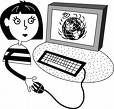 Experts from some ten countries will discuss ethical dimensions of the information society this week in Santo Domingo, the capital of the Dominican Republic, in a Regional Conference that is organized by UNESCO and the Fundacion Global Democracia y Desarrollo (FUNGLODE).
Experts from some ten countries will discuss ethical dimensions of the information society this week in Santo Domingo, the capital of the Dominican Republic, in a Regional Conference that is organized by UNESCO and the Fundacion Global Democracia y Desarrollo (FUNGLODE).
The participants in the Conference will also discuss a draft of a Code of Ethics prepared by UNESCO in cooperation with international experts. A Declaration on Infoethics in Cyberspace is also planned to be adopted by the participants.
“In Santo Domingo, we provide to information producers, managers, users and service providers a platform for discussing the definition of best practices and voluntary, self-regulatory, professional and ethical guidelines that UNESCO believes are essential in face of increasing globalization”, says UNESCO’s Boyan Radoykov.Since 1997, UNESCO initiated a series of events enabling specialists and decision-makers to address the ethical dimensions of the Information Society.
Related
UNESCO Communication and Information Portal, Ethical Issues of Information Society
Logo ©InfoEthics 2004 Roundtable
Tuesday, December 05, 2006
2007: 'Year of Science' in Africa?
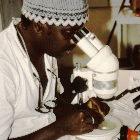 The following is excerpted from an article written by Wagdy Sawahel and posted on SciDev.Net. Please click here to access full article.
The following is excerpted from an article written by Wagdy Sawahel and posted on SciDev.Net. Please click here to access full article.
African science ministers who met last week in Cairo, Egypt, have recommended a set of measures to promote science and technology across the continent for endorsement at next month's African Union (AU) summit of heads of states. The ministers will ask the summit to create a Pan-African Intellectual Property Organization, and to designate 2007 as a year for science, technology and innovation in Africa.
The heads of state will be asked to agree that at least 1 per cent of countries' gross domestic product should go to promote research and development and to develop innovation strategies for economic growth. The ministers will also ask the AU summit to express support for South-South cooperation in science, technology and innovation, and to enhance the role of such cooperation in international partnerships.
A plan to create a 20-year biotechnology strategy was among many ideas that the ministers pledged to commit themselves to collectively. This strategy will involve harmonizing national and regional regulations that promote the application and safe use of biotechnology.
The proposal to nominate 2007 as a year of science, technology and innovation provoked lively discussion at the conference. Some ministers hesitated over launching such a year so soon, without clarifying what activities and programs it would entail, but there was an eventual agreement to call 2007 the 'launching year' for building up science and technology in Africa.
The ministers pledged to create common guidelines for identifying and creating African networks of centers of excellence in science and technology. They also vowed to better consult with local scientists, including science academies in Africa and African scientists in the diaspora. This comes partly as a response to recent criticism from the scientific community that it felt excluded from policy decisions (see African academies urge politicians not to ignore them).
Their final recommendations, named the 'Cairo declaration', will be presented to the AU Summit in Addis Ababa, Ethiopia next January, which will focus on 'Science, Technology and Research for Africa's Development'.
Organized by the AU Commission on behalf of the African Ministerial Council on Science and Technology (AMCOST), the conference was attended by representatives from 26 AU member states and agencies, international and continental government and nongovernmental organizations, and the diaspora.
Photo ©SABC News
Friday, December 01, 2006
International Round Table: Women and Research: Tangible Progress?
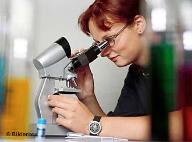 Within the framework of the Second International Colloquium on Research and Higher Education Policy, today’s Round Table at UNESCO Paris Headquarters will address the issue of women’s involvement in higher education, particularly in research, and their advancement in this sphere. It will emphasize the progress made by women in the area of research and its impact on women’s empowerment, the challenges faced by women in their research career and the lessons learnt regarding factors that foster an enabling environment for women’s participation in research.
Within the framework of the Second International Colloquium on Research and Higher Education Policy, today’s Round Table at UNESCO Paris Headquarters will address the issue of women’s involvement in higher education, particularly in research, and their advancement in this sphere. It will emphasize the progress made by women in the area of research and its impact on women’s empowerment, the challenges faced by women in their research career and the lessons learnt regarding factors that foster an enabling environment for women’s participation in research.The participants to the Round Table are established researchers and leaders in their fields of expertise. They will reflect on these issues from a personal and institutional perspective.
Photo ©Bilderbox
UNESCO and HP Launch Grid Computing Project To Counter Brain Drain In Africa
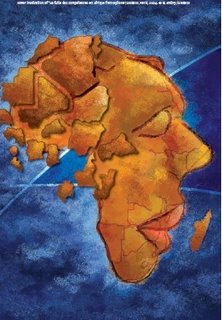 African scientists will be able to connect up with fellow researchers who have moved overseas through a 'grid computing' project. Grid computing technology uses powerful computer servers to give individuals access to databases all over the world.
African scientists will be able to connect up with fellow researchers who have moved overseas through a 'grid computing' project. Grid computing technology uses powerful computer servers to give individuals access to databases all over the world.The UNESCO Hewlett-Packard “Piloting Solutions for Reversing Brain Drain into Brain Gain for Africa” project was launched on November 20th to help reduce brain drain in Africa by providing universities laboratories and research centers in Algeria, Ghana, Nigeria, Senegal and Zimbabwe with systems of interconnections that will enable students and faculty who have stayed in their countries to establish links with researchers and professionals around the world.
The African project was developed by UNESCO’s Education Sector in response to requests by Member States. Over the past decades, African countries have suffered greatly from the emigration of skilled professionals, scientists, academics and researchers who are estimated to be leaving the continent at the rate of 20,000 a year.
The Education Ministries of the countries involved, along with UNESCO, will choose the universities that will benefit from the project. Preference will be given to university departments with important information technology components. HP will provide equipment and local human resources to the universities, as well as training and support, until the projects become self-sustainable. It will also donate PCs and monitors and fund research visits abroad and meetings between beneficiary universities.
UNESCO will be in charge of overall coordination and monitoring of activities, as well as administrative management; evaluation and promotion of results.
This new project in Africa follows the successful joint HP-UNESCO “Piloting Solutions for Alleviating Brain Drain in South East Europe” project, launched in 2003. Three years after its launch, the project has resulted in the development of websites, databases and new research projects at several of the universities involved. Four universities* have become self-sustainable in the use of grid technology and the project continues in three other universities**.
*University of Split in Croatia, University of Montenegro, East Sarajevo University and the University of Sarajevo
**University of Belgrade, University of Skopje and the University of Tirana
Related
Check out the October 2006 issue of UNESCO’s “Education Today” Newsletter: From brain drain to brain gain (PDF)
UNESCO and the private sector
African students the most mobile in the world, From the UNESCO Institute for Statistics
Hewlett-Packard and UNESCO, A partnership that works
UNESCO and US Library of Congress Host Meeting on World Digital Library Project
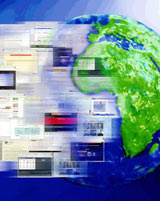
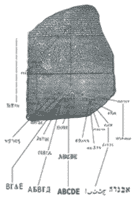
UNESCO and the Library of Congress will host today at UNESCO Paris Headquarters a meeting to pave the way for the launch of a World Digital Library, an internet-based repository of knowledge from all cultures and in all languages. The meeting will seek to establish a network of experts and partners who will work on the project. It is hosted by UNESCO Assistant Director-General for Communication and Information Abdul Waheed Khan, U.S. Ambassador to UNESCO Louise Oliver, and Librarian of Congress James H. Billington, who first proposed the idea for a World Digital Library in 2005. It will be chaired by Claudia Lux, President-elect of the International Federation of Library Associations and Institutions (IFLA).
“Making all this available free of charge on the Internet will give teachers and librarians a new resource to encourage young people to reads and study foreign languages, and will advance learning both with and between countries”, said Laura Bush, First Lady of the United States of America, and Honorary Ambassador for the UN Literacy Decade, in a message to the meeting.
“I am pleased UNESCO, the United States and other partners continue moving forward on this important initiative,” said UNESCO Director-General Koïchiro Matsuura. “We must encourage all Member States to pool efforts at all levels to protect unique and endangered books, manuscripts, archival documents and audio-visual materials through the use of state-of-the art technologies,” added Mr Matsuura.A key aspect of the project is to build digital library capabilities in the developing world, so that all countries and parts of the world can participate and be represented in the World Digital Library.
“For UNESCO, libraries – be they paper-based or digital – have always played a crucial role to fulfill its mandate to promote the free flow of ideas by word and image and to maintain, increase and spread knowledge”, said Abdul Waheed Khan announcing UNESCO’s support to the initiative.Related links
*Proposal for a World Digital Library. James H. Billington. The Librarian of Congress. Remarks to the Plenary Session. The U.S. National Commission for UNESCO. Georgetown University. 6 June 2005
* U.S. Mission to UNESCO
* UNESCO Supports Libraries
* World Digital Library Initiative Factsheet
* Should UNESCO Promote the Development of a World Digital Library?
* World Digital Library Planned: Library of Congress Envisions Collection to Bridge Cultures
